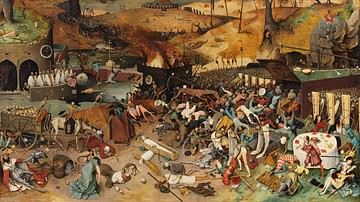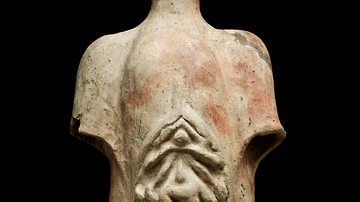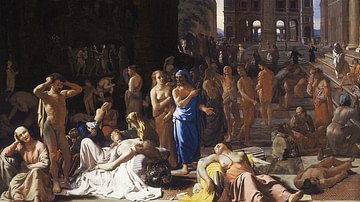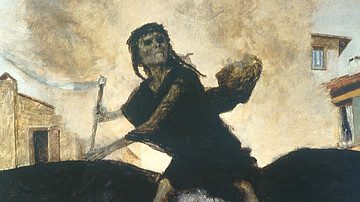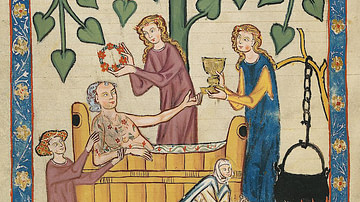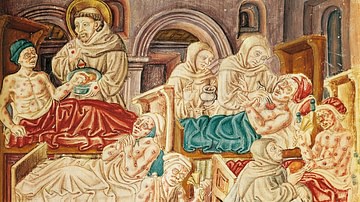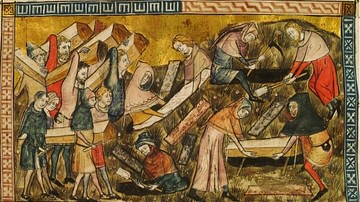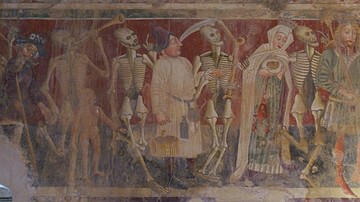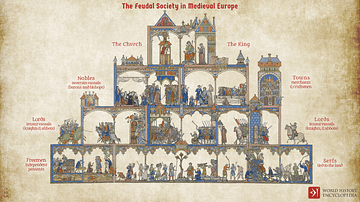Plagues have swept through humanity ever since communities have gathered together in concentrated groups. In this collection of resources, we look at just some of the pandemics that raged throughout Antiquity and the Middle Ages, from the plague that ripped through Athens in the 5th century BCE to the most destructive of all, the Black Death of the 14th century CE. We examine not only the causes, spread and casualties of these awful events but also the lasting effects on the societies they ravaged. If there is one consolation, humanity has always survived and life has, somehow, and often with great difficulties and sacrifices, found a way to go on.
Medieval doctors had no idea about such microscopic organisms as bacteria, and so they were helpless in terms of treatment, and where they might have had the best chance of helping people, in prevention, they were hampered by the level of sanitation which was appalling compared to modern standards. Another helpful strategy would have been to quarantine areas but, as people fled in panic whenever a case of plague broke out, they unknowingly carried the disease with them and spread it even further afield; the rats did the rest.
The Black Death
